November 7, 2008
Air Date: November 7, 2008
FULL SHOW
SEGMENTS
Obama's Chance
View the page for this story
Voters chose a greener White House and Congress. Living on Earth’s Steve Curwood, Ingrid Lobet and Jeff Young explain what the election means for clean energy and climate change—and how measures to cap carbon emissions and advance renewable energy might fare. (10:30)
Green Wishes
View the page for this story
Living on Earth asked listeners what they want to see happen in the first 100 days of the Obama presidency. (02:00)
The De-Bushification of Regulations
View the page for this story
For eight years, industry and lobbyists have had a strong voice in crafting environmental and food regulations. John Hopkins University Professor Lynn Goldman tells Living on Earth’s Jeff Young she’s optimistic that an Obama administration will make decisions based on science rather than politics. (05:30)
A Long-Awaited Leader
View the page for this story
Barack Obama is not only the first African American to make it to the White House...he’s also the Oval Office’s first community organizer. That has many activists in the environmental justice movement optimistic about his commitment to the environment. Host Steve Curwood speaks with Monique Harden, co-director of Advocates for Environmental Human Rights, and Cheryl Johnson, director of People for Community Recovery. (08:45)
A Green New Deal
View the page for this story
Franklin D. Roosevelt launched his New Deal in the first hundred days of his administration. Will President-elect Barack Obama embark on an ambitious green New Deal when he takes office? Host Steve Curwood talks with Robert Reich, former Secretary of Labor in the Clinton administration, about the prospects for the new president. (04:00)
The First 100 Days
View the page for this story
President-elect Barack Obama has said the environment is going to be one of his top priorities. And with a changed political landscape on Capitol Hill, just how much will he accomplish? Host Steve Curwood and Washington correspondent Jeff Young talk with three green policy experts - Van Jones, author of “The Green Collar Economy,” Mindy Lubber president of Ceres, and James Gustave Speth, Dean of the School of Forestry & Environmental Studies at Yale - about what President Obama should take on in his first 100 days in office. (15:00)
Change to Come
View the page for this story
From “drill, baby, drill” to “clean energy now,” it’s been a long campaign season. Host Steve Curwood and Washington correspondent Jeff Young, with the help of some of our listeners, look at the changes – and challenges - that may lie ahead for the next administration. (02:00)
Show Credits and Funders
Show Transcript
Host: Steve Curwood
Guests: Dr. Lynn Goldman, Monique Harden, Cheryl Johnson, Van Jones, Mindy Lubber, Robert Reich, James Gustave Speth
Reporters: Jeff Young, Ingrid Lobet
[THEME]
CURWOOD: From Public Radio International, this is Living on Earth.
[THEME]
CURWOOD: I’m Steve Curwood.
YOUNG: And I’m Jeff Young.
The election’s over at last, and the president-elect says he’s facing a monumental set of problems.
OBAMA: For even as we celebrate tonight, we know the challenges that tomorrow will bring are the greatest of our lifetime – two wars, a planet in peril, the worst financial crisis in a century.
CURWOOD: We take a look at how other electoral races round the country could affect green policies -– and senior democrats point to an environmental solution to the economic crisis.
JONES: This is the beginning of the end of the carbon age – it’s the beginning of the beginning of the solar age – our president has the rising sun as his symbol - we have to move in this direction.
YOUNG: A green agenda for Obama’s first 100 days - Those stories and more this week on Living on Earth. Stay with us!
ANNOUNCER: Support for Living on Earth comes from the National Science Foundation and Stonyfield Farm.
Obama's Chance

(Courtesy of Barack Obama)
CURWOOD: From the Jennifer and Ted Stanley Studios in Somerville, Massachusetts, this is Living on Earth. I’m Steve Curwood.
YOUNG: And I’m Jeff Young in Washington. Millions of Americans, more than had ever voted before went to the polls inspired by a historic presidential contest. The euphoria was overwhelming at the result, but the forty-fourth president sounded a somber note in accepting his new job.
OBAMA: For even as we celebrate tonight, we know the challenges that tomorrow will bring are the greatest of our lifetime: two wars, a planet in peril, the worst financial crisis in a century.
CURWOOD: Those ominous problems could cramp some of the expansive promises made on the campaign trail on the subjects of energy and the environment.
OBAMA: We have to have energy independence. So I’ve put forward a plan to make sure that in ten years’ time we have freed ourselves from dependence on Middle Eastern oil by increasing production at home, but most importantly by starting to invest in alternative energies – solar, wind, biodiesel. Making sure that we are developing the fuel efficient cars of the future right here in the United States, in Ohio and Michigan, instead of Japan…
I think that we should look at offshore drilling and implement it in a way that allows us to get some additional oil. I support clean coal technology. It doesn’t make me popular with environmentalists, so….
I favor nuclear power as one component of our overall energy mix….
I also think that we’re gonna have to rebuild our infrastructure, which is falling behind. Our roads, our bridges, but also broadband lines that reach into rural communities. Also making sure that we have a new electricity grid to get the alternative energy to population centers that are using them….
But we know government can’t do it all. That’s why I’ll call on every American to join in conservation efforts. I believe we need to usher in a new era of responsibility.
CURWOOD: Boy, you know, I’m already exhausted. That’s such a long list, Jeff. And President Obama hasn’t even taken office yet.
YOUNG: Well, I think that kind of “greatest hits” compilation from the campaign trail there was a taste of the balance that he had to strike, the difficult balance that he had to strike on energy and the environment. And he obviously did it because he won in a landslide. Now the question is, can he strike the right balance to govern and to advance that clean energy agenda that he has.
CURWOOD: Well with cash being tight, I can see that the early priorities will be what – reducing demand. Also I think it’s important to get what - a cap and trade program which would generate revenues to do this other stuff – if, in fact the right to emit CO2 comes at a cost – these rights are auctioned.
YOUNG: That could very well be a way to, you know, raise the money to invest in these other programs that he wants to do. I think the first thing we’re gonna see, and one that he made very clear was his top priority, was this investment in clean energy to create green jobs. And even if it involves deficit spending, I think he is dedicated to that.
CURWOOD: Now let’s bring in our western bureau chief Ingrid Lobet. Ingrid, you on the line there from Los Angeles?
LOBET: Hi Steve. Hi Jeff.
CURWOOD: And what did you hear in that long list in Obama green promises?
LOBET: Well I did hear a long list of promises also, but there were a few things that I didn’t hear that are often on the minds of people in the West. I didn’t hear much during the campaign about public lands, about forests, parks, about superfund, the clean up of thousands of contaminated sights around the country, and I didn’t hear much about asthma, air quality.
CURWOOD: Now Obama in his landslide brought along a lot of Democratic candidates for senator. What did you see in the west and how does that affect the environmental agenda?

(Courtesy of Barack Obama)
LOBET: Well probably the biggest switch will be from Pete Domenici in New Mexico to Tom Udall. Domenici has been a friend to oil companies, to nuclear power and also to the mining industry. Now he’ll be replaced by Congressman Tom Udall who’s been all about protecting public land, pushing for nationwide clean energy requirement, and a member of the House Conservation Caucus. In Colorado, Wayne Allard left his seat, and he’ll be replaced with Mark Udall, that’s Tom Udall’s cousin. And Mark Udall has been on the House Energy and Efficiency Caucus, he’s sponsored legislation on land wilderness, the kinds of things that his father, the legendary Mo Udall is still remembered very fondly for in many places. And in Oregon, the incumbent senator Gordon Smith has voted in the Senate against taking action on climate change and as recently as five years ago said that scientists were split on the certainty of climate change. His seat is going to be taken by Jeff Merkley, who has put that issue – addressing climate change – front and center in his campaign. He wants to cut CO2 emissions 80 percent by 2050.
CURWOOD: And in the Northeast there were two races I think that were impacted by this landslide and by the environment. In New Hampshire, in a rematch between Republican John Sununu, who had the seat for the last six years, and the former governor, Jean Shaheen, Shaheen won this time, I think in no small measure because Sununu has been less aggressive on climate change. And in Maine, Susan Collins, the Republican, kept her seat, I think with more than 55% of the vote, even though the rest of the state went to Obama and two Democrats for both house seats.
YOUNG: She has a very strong environmental record in Maine, and environmentalists were also closely watching the race – senate races in North Carolina and Virginia, where Democrats unseated Republicans in both those states. Kay Hagan replacing Elizabeth Dole in North Carolina. And in Virginia, Senator John Warner being replaced by former Governor Mark Warner. So that’s now officially the Warner chair in the senate, I think. It’s now moved from Republican to Democratic control and in a lot of environmentalists’ view, that’s an improvement there – that’s a vote they think they can count on. A lot of gains here for the Democrats, and I think a lot of gains here for an environmental agenda. This is going to be a greener Congress in both the House and the Senate. However, that does not necessarily translate into immediate success for some of these high agenda items for the environment.
CURWOOD: And so what’s the strategy then for the Obama administration and for those senate leaders on the environment – I’m thinking of Barbara Boxer for example, the Chair of the Environmental Committee who’s really been pushing for climate legislation. What’s their agenda to get things forward? And, you know, if you look ahead to say to the U.S. getting back into an international agreement on climate change you would need 67 votes to ratify a treaty.
YOUNG: Yeah. Clean energy and climate change – these are the top of the list. I think getting some of the clean energy items will be easier, because people are onboard with that. That was a strong element in a lot of the campaign rhetoric and campaign advertising. You know, there were 54 campaign ads that used windmills, just because candidates obviously viewed this as a very positive way and voters responded positively. So that’s easier. Getting the cap and trade for climate and, as you mentioned, getting ratification of an international climate agreement, much more difficult. I had a nice talk with Senator Barbara Boxer. She chairs the Senate’s Environment Committee, of course, from California – Democrat from California – and she told me that she sees a possible strategy here that involves allowing the EPA to perhaps advance with its authority to regulate greenhouse gases like carbon dioxide. If members of Congress see EPA taking this path, they’re gonna say “Hey, wait a minute. That’s our job.” And they’re gonna, maybe, you know, get off their duffs and pass a climate change bill.
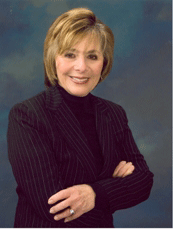
Senator Barbara Boxer. (Courtesy of Barbara Boxer)
LOBET: And also the states are going to be able to proceed on their own now, as far as climate change. California and nineteen other states have been waiting for permission from the Environmental Protection Agency to regulate tailpipe emissions and EPA has been withholding that permission. But now with a new administration that is going to change.
CURWOOD: Looks like on Capitol Hill, Jeff, you’re gonna get to see an old fashioned shoot out at the OK Corral. I saw there was a release from Congressman Henry Waxman saying he’s gonna run to be chair of the very powerful Energy and Commerce Committee that Congressman Dingle from Michigan has had as his fiefdom either as the chair or the senior member, I don’t know, for the last twenty years or something. Seems to me like that’s gonna be a pretty good fight.
YOUNG: I can’t wait to see this one unfold. You know Chairman Dingle, John Dingle of Michigan, has a pretty good environmental record, but his critics say he considers the environment to end at the very point that you shut the door of a car. He represents the auto making region there and, you know, this is shaping up to be Mr. Clean vs. Tailpipe Johnny, just to use the nicknames that float around about these two guys. Henry Waxman, gonna take a shot at being chair of the House Energy and Commerce Committee, one of the most powerful positions on Capitol Hill. This is going to be very interesting to see how this shapes up and it could be very consequential for what kind of climate bill emerges from the House.
CURWOOD: Ingrid, let me ask you about the ballot initiatives, the various referenda around the country – how did those play out?
LOBET: Well, Missouri joins the long list of states that have a renewable energy requirement. It will be 15% clean energy by the year 2021. In Pennsylvania they’re going to invest $400 million in cleaning up what are the state’s original water and sewer pipes to the benefit of Chesapeake Bay. Californians voted to spend $10 billion to build a fast train – 220 miles per hour – to get them between Los Angeles and San Francisco. And 20 million egg laying chickens in California will now have to be raised in larger cages. That was an initiative that says chickens have to be able to extend their wings and turn around. Apparently it’s not unusual for chickens currently to occupy a sheet of paper’s worth of space in a group cage.
CURWOOD: Ingrid Lobet is Living on Earth’s West Coast bureau chief. Thanks Ingrid.
LOBET: You’re welcome.
Green Wishes
CURWOOD: Last week we invited you listeners to come up with suggestions for environmental and energy priorities in the first one hundred days of the new administration. And you did.
MAN: One of President Obama’s priorities in his first hundred days in office should be “debushification” of the government. This would be removing Bush appointees that are either unqualified or politically biased.
MAN: I think one of Barack’s first actions should be to rejoin the world community by re-signing the Kyoto Treaty. I think this will send a clear message to the world and to all Americans that he’s committed to resolving the climate crisis and working with all nations in a global effort.
WOMAN: Why not uncap all the oil and gas wells that are now capped in the United States. We could get thousands and thousands of millions of gallons of gas and oil from them.
MAN: I think that in the first hundred days the new president needs to work with Congress to tax carbon, nonrenewable sources of energy and use that to fund research and development of alternative energies and increased energy efficiency, especially in buildings.
MAN: I believe the new president should have a moratorium on new coal-fired power plants and instead we could be investing in alternative energies, especially solar and nuclear.
WOMAN: It is very important to me that the United States follow what is going on in Europe and Asia and restore its railroad transport. The cross country railroad transport is – except for a few routes – is shockingly bad.
WOMAN: I think our food system is broken. I – my biggest concern is animal agriculture. According the UN, the raising of cattle contributes more to greenhouse gases than cars do, and this is an issue that I would very much like our president to address.
YOUNG: Voices of our listeners Matt Trostel from Texas, John Deterling from Maine, Jay Turner of California, Judy Dobbs-Matter of Pennsylvania, Caleb Crawford of Mississippi, Jack Helder of Michigan, Andy Palmer from Pennsylvania, and Isabella La Rocca of California. And thanks to many more of you who also weighed in.
CURWOOD: Just ahead, more ideas for President-elect Obama’s environmental priorities, and the echoes of another president who took office in shaky financial times. Keep listening to Living on Earth.
The De-Bushification of Regulations
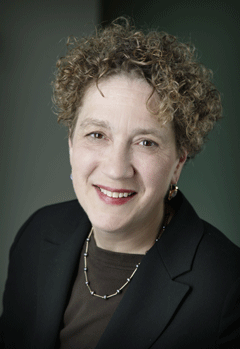
Dr. Lynn Goldman is a professor at Johns Hopkins University.
CURWOOD: It’s Living on Earth, I’m Steve Curwood.
YOUNG: And I’m Jeff Young. What will the election mean for the safety of our food, our medicine and the products we buy?
For years we’ve been reporting on the Bush administration’s approach to safety and health regulation, and for years we’ve heard charges that enforcement was weakened and science undermined.
One of Washington’s top watchdogs, the GAO – the Government Accountability office, said political appointees influenced scientific assessments of hazardous chemicals at the Environmental Protection Agency: here’s John Stephenson, director of Natural Resources and the Environment at the GAO.
STEPHENSON: They’re getting involved in the science portion, the early assessment of chemicals. They should not be muddling in the front part, in the science.
YOUNG: And scientists accuse the Food and Drug Administration of using industry-friendly studies to evaluate the safety of a chemical found in baby bottles. Beth Jordan is medical director of the Association of Reproductive Health Professionals.
JORDAN: The FDA’s current draft assessment concludes that BPA is safe. This conclusion is based on two studies, both of which are funded by institutions that have a financial stake in the outcome of the FDA’s decision.
YOUNG: On and on it went. Industry lawyers held key government positions. Agencies ignored their own science advisors, and industry lobbyists sometimes wrote new regulations. President-elect Obama promises change, but what will it take to really change these important regulatory agencies after eight years of Bush Administration control? Well, Doctor Lynn Goldman has some thoughts on that. She’s a pediatrician who’s served in the EPA as an assistant administrator for toxic substances during the Clinton administration. And she’s now a professor at the Johns Hopkins University’s Bloomberg School of Public Health in Baltimore where she joins us now. Dr. Goldman, welcome to the program.
GOLDMAN: Hi Jeff, it’s nice to talk to you.
YOUNG: Dr. Goldman, what is the most important thing for the new president to do with these regulatory agencies?
GOLDMAN: Well, I think that in a nut shell the most important thing is that the new president would bring in people who could restore the integrity of the regulatory processes in the federal government. I would hope for people who would have a very fundamental respect for the law and a respect for the science and incorporation of the science in the rulemaking process. Some of the concerns about the meddling with the science has been directed not at political appointees, but at the career scientists, the experts who dedicate their lives to providing science and serving the public and in many, many instances they’ve been constrained to be able to communicate honestly.

Dr. Lynn Goldman is a professor at John Hopkins University.
YOUNG: Well that is certainly on the minds of our listeners. Rod Roderick - he’s one of our listeners from Michigan City, Indiana – he left this comment for us.
RODRICK: My advice to the next president would be to have his key people, the one’s he’s gonna put at cabinet levels, to listen to the senior civil servants in those departments, EPA, whatever. Listen to what they have to say. Obviously they’re gonna get to hear what the lobbyist have to say. They’re paid a lot of money to get the corporate point of view in the door, but I think sometimes that people just don’t listen to the real knowledgeable people who spent twenty, thirty years on the job.
YOUNG: Is there a particular item that you think stands out as something that should be at the top of the list, that absolutely must be corrected, taken care of, right out of the gate.
GOLDMAN: We have seen very, very risky circumstances over the last couple of years with issues such as melamine in pet food and now in infant formula in China and maybe in the food supply in the U.S., food safety issues such as the salmonella epidemic that we had last summer that have been dealt with in a very ineffective process, in my view. And I think that this is going to be very important for the new administration to address. There’s been a lot of effort to promote free trade, which has probably been a good thing in terms of international relations and probably overall good in terms of the economy, but there have not been adequate protections in terms of making sure that those goods and commerce are safe. Europe has moved forward with legislation that’s a lot more rational. There was a time when we were well ahead of them in terms of safety of our products, but at this point in time that’s not the case.
YOUNG: What’s your feeling – are we headed toward a system that’s gonna make our children, our products, our medicine, our food a little safer?
GOLDMAN: I do feel optimistic about that, absolutely. Too often when we talk about these issues of regulations and safety, it’s as if we’re all in conflict about this and it’s industry versus environment, or it’s job versus the economy, and that is not a way that produces productive results. I think we have a new administration that can bring people together to find approaches to make things safer and I do feel very optimistic about that.
YOUNG: On that hopeful note, Dr. Lynn Goldman, Professor at the Johns Hopkins University Bloomberg School of Public Health in Baltimore, thank you very much for joining us.
GOLDMAN: Thank you.
A Long-Awaited Leader

Altgeld Gardens was built in 1945 on an abandoned landfill in Chicago's South Side to house returning African American veterans of World War II. It's a heavily polluted neighborhood, and the central cause in Cheryl Johnson's work with People for Community Recovery. (Courtesy of the University of Wisconsin)
CURWOOD: Critics of the outgoing administration say it’s not just product regulation that’s been lax – there’s also been a lack of support for environmental justice. Even so, the environmental justice movement has continued to grow. Grassroots activists keep fighting the disproportionate effects of pollution on the health and prosperity of communities of color in the United States. Joining me for a look ahead at what an Obama Administration will mean for these concerns are Monique Harden and Cheryl Johnson. Monique Harden is an attorney who co-directs Advocates for Environmental Human Rights – they’re a nonprofit law firm headquartered in New Orleans.
Ms. Harden, thanks for being here.
HARDEN: Thank you for having me, Steve.
CURWOOD: And also we have with us Cheryl Johnson. She’s the director of People for Community Recovery, a nonprofit that deals with pollution issues in the urban communities of Chicago. Ms. Johnson, hello!
JOHNSON: Hello, Steve, how you doing?
CURWOOD: So, Monique, let me start with you. How different do you think it’s going to be for the environmental justice movement having an African American for president of the United States?
HARDEN: It’s a tremendous moment. I still don’t – I am still in – it feels almost dreamlike right now, to be honest. And, I’m also very cautious about, you know, what this work and what this job – what it’s really going to take to be able to execute, and execute successfully. You know, Barack Obama’s not only the first African American as president of the United States, but he’s also the first community organizer. And I really think that the way in which Barack Obama has run his campaign has been one where he’s really inspired people to do more in terms of how they can improve their communities and the role that they want to see government play in that work. And so I think it’s one that really supports and buttresses the work of people around this country who want nothing more than a safe place to live for their children to grow up, and they see the government in the past working in ways that undermined those very basic simple goals.

Monique Harden
JOHNSON: Well, I think of this as a wake up call for the African American community. There’s not so much being dependent on the White House to do everything for us. It’s time for us to go back to our community, wake up our community, organize our community, and say now we can make change. He gave us the vision to be able to say change can happen in our community. But we have to take those steps. So the sleeping lions is now awake, and it’s just about doing what we have to do in our community to make this country a much better country.
CURWOOD: Cheryl Johnson, where you live there’s so much toxic pollution, what should be done? What do you think an Obama could get done?
JOHNSON: Well, unfortunately, because our community – I know that my community should have never been sited in an industrial area in the beginning. Okay, but that’s water under the bridge. The fact is that the community have sixty years of history, of people living in that community, and one of the things that I know in this country – we know how to dirty up things, but we don’t know how to clean up anything. So what I consider my community – not only is we’re living in a toxic donut, but we also can be in an open environmental lab, get the real engineers, get the real scientists and get the real medical experts and let’s learn from the mistakes, but give us the power, take away the red tape, take away the bureaucracy. Because we are quiet as a cat, we are the experts in our community, we just don’t have the resources to be able to do the things that we need to do in our community. One of the biggest polluter in this country is our auto industry. Now they’re in a financial crunch and we gonna bail them out to continue to pollute our environment. It’s a complex issue, and I hope that all these, you know, environmental issues, be one of imporance because of its interconnectedness and its interrelationship to every facet of life.
CURWOOD: So, Monique Harden, you wrote a recent opinion article, and I quote, “The Clean Air Act and Clean Water Act have permitted industrial facilities to contaminate communities of color, some tragically, into extinction.” What do you mean by this?
HARDEN: The problem that we have is that the laws don’t protect human health and they don’t protect and sustain our environment. And as a result of that, for example in the state of Louisiana where I live, we’ve lost five historic African American communities from contamination and pollution caused by facilities that had permits to operate. It’s a real problem to be able to look at, you know, just the physical landscape of our country and be able to point to areas that used to be communities that are no longer – that no longer exist, and they no longer exist because of really flawed environmental laws.
CURWOOD: So, Monique Harden, let me ask you this, how much pressure do you think President-elect Obama is going to be willing to put on industry?

Cheryl Johnson with Jumar Rogers a member of the People for Community Recovery Photovoice for Environmental Justice Club. (Courtesy People for Community Recovery)
CURWOOD: Barack Obama was not elected with a majority of white people in this country. The returns show that if just whites had been in the election he would have lost. But he had, of course, tremendous support from many whites and, of course, a lot of support from people of color. To what extent are you concerned that people may see activism or concern by President Obama in the area of environmental justice as working on behalf of a special interest group?
HARDEN: I think he’s got the ability, no matter what the issue is, to explain it and present in a way where everyone sees it is in their best interest. He’s got a real skill for working in a way that is really about unifying and bringing people together. I think, you know, with environmental justice, if we begin to see environmental justice as not something that would divide or alienate one group from another, but instead really unify people. I think one of the ways in which we can approach it is looking at it this way: You know we are losing communities to contamination, pollution, unsustainable hazardous developments in a number of industrial operations. Our country is only as strong as all of our communities. And if we allow some communities to be sacrificed for polluting industrial operation, then we’re sacrificing a part of ourselves.
CURWOOD: Cheryl Johnson?
JOHNSON: Well, I just want to say that this is a quality of life issue and one thing I’m clearly – I’m clear in my mind that I understand – and it has nothing to do with any kind of special interest groups or no lobbyists or anything like that – pollution has no boundaries. Pollution doesn’t discriminate. And pollution definitely does not go to Heaven. So when we’re out here fighting for better quality of air, it’s not just for my lungs, it’s for everybody’s lungs. And I think that’s probably one of the biggest problem we having is people think they are far removed from the environmental quality that they’re happening in my community and they’re not, so – it’s about your current family, it’s about your future family, it’s about the whole environmental quality of this country. I mean look at the global warming, look at the climate changes that we already experience. Do we get it? That’s just common sense to me, so if we get back to the common sense of things in our country, I think we’ll have a better clear vision as to what direction that we need to go. And I think we got the right messenger.
CURWOOD: Cheryl Johnson is director of People for Community Recovery in Chicago. Thank you so much.
JOHNSON: Thank you.
CURWOOD: Monique Harden is an attorney who co-directs Advocates for Environmental Human Rights in New Orleans. Thank you so much, Monique.
HARDEN: Thank you.
Related links:
- Cheryl Johnson's Organization
- Monique Harden's Organization
- Read Monique Harden's op-ed in Ms. Magazine
[MUSIC: Roaring 20s music]
A Green New Deal

Many hope President-elect Barack Obama will follow in FDR's footsteps and lead the country through a great transformation. (Courtesy of Barack Obama)
CURWOOD: Some people see an echo of the roaring 20s in the turbulence of present day financial markets. Back then the US economy went on a wild ride. Then, came the fall…
[MUSIC: Bing Crosby, “Brother Can You Spare A Dime” from a You Tube video]
CURWOOD: …the fall of 1929. The stock market crashed, thousands of banks failed, unemployment soared.
[MUSIC: Bing Crosby, “Brother Can You Spare A Dime” from a You Tube video]
CURWOOD: And by the next election America was deep in what became known as The Great Depression. Economist Robert Reich was the Secretary of Labor in the first Clinton Administration – now he teaches at the University of California at Berkeley.
And Professor Reich, how much does 2008 feel like 1929 to you?
REICH: Well, it feels a little bit like 1929, that is, there was before 1929’s great crash a lot of leverage, a lot of borrowing going on, both by the private sector and by consumers. Great concentration of wealth – the top one percent in the 1920s had about, just about twenty-two percent of total national income. Haven’t seen that since then until last year. We also see and saw in the 1920s and also over the last few years, a lot of – well, irrational exuberance you might call it. Some people would call it speculation in Wall Street. Well, all of that caved in in1929 and continued to cave in. Now hopefully there are profound differences – that is, in 1929 the economic authorities, that is the Federal Reserve Board, the Treasury, didn’t really know how important it was to infuse a lot of money, a lot of public money into the system very quickly in order to overcome a crisis of confidence. And we went in the opposite direction in fact. Herbert Hoover put the breaks on government spending, thought hat balancing the budget was very important, exactly the wrong instinct. Right now we have flooded the market. The Federal Reserve Board has – is spending like mad, as is the Treasury Department as you know, so hopefully we will not have a 1929-type situation.
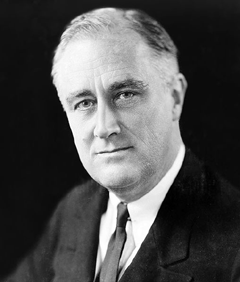
Franklin D. Roosevelt in 1933.
CURWOOD: So, Mr. Hoover lost his job to a man named Mr. Roosevelt who came in on pretty much a landslide and had this to say as he began his term.
ROOSEVELT: This nation is asking for action, and action now. Our greatest primary task is to put people to work. This is no unsolvable problem if we face it wisely and courageously. It can be accomplished in part by direct recruiting by the government itself, treating the task as we would treat the emergency of a war. But at the same time through this employment, accomplishing great, great needed projects to stimulate and reorganize the use of our great national resources.
CURWOOD: So, Professor Reich, Franklin Roosevelt didn’t talk about pouring lots of money into banks. He said let’s use the federal government as the engine to hire a lot of people and put them to work. How relevant is that approach today? And to what extent do you think it should be part of a green New Deal?

Many hope President-elect Barack Obama will follow in FDR's footsteps and lead the country through a great transformation. (Courtesy of Barack Obama)
REICH: Steve, it is relevant to the extent that Roosevelt did understand how important it was to rebuild the nation’s infrastructure, build roads and highways, bridges, all sort of ports, things that the nation had never done before, because there was so much unemployment, because there was so much excess capacity. And there are parallels today. Our infrastructure is crumbling, most reports show that there’s a lot of deferred maintenance, and with regard to the whole issue of energy and the environment, there is so much to do. The entire area of alternative energy sources, government investment in everything from solar to wind to biomass, all sorts of fuels to get rid of our dependence on oil, and also clean up our environment. There’s also likely to be a lot of unemployment out there and maybe, just maybe, a lot of that investment will generate many, many new jobs - green jobs. If we’ve got investments that have to be made in infrastructure, in the environment - well, borrowing to make those investments can generate high pay offs and grow the economy in the future.
CURWOOD: Former Secretary of Labor Robert Reich’s latest book is called “Supercapitalism.”
Related link:
Robert Reich's Blog
CURWOOD: In his first 100 days FDR launched the Civilian Conservation Corps – and founded the Tennessee Valley authority, a massive infrastructure project to bring everything from electricity and flood control to healthcare and reforestation to the impoverished region.
[MUSIC: Bing Crosby, “Brother Can You Spare A Dime” from a You Tube video]
YOUNG: Coming up – more ideas for the green agenda the president elect should adopt. Keep Listening to Living on Earth.
ANNOUNCER: Support for the Environmental Health Desk at Living on Earth comes from the Cedar Tree Foundation. Support also comes from the Richard and Rhoda Goldman fund for coverage of population and the environment. And from Gilman Ordway for coverage of conservation and environmental change. This is Living on Earth on PRI, Public Radio International.
The First 100 Days

With an election victory behind him, the spotlight moves to the first 100 days of Barack Obama's presidential administration. (Courtesy of Barack Obama)
CURWOOD: It’s Living on Earth, I’m Steve Curwood.
YOUNG: And I’m Jeff Young.
Ever since 1933, when FDR created the programs that would pave a path out of the Depression, the first 100 days of a new presidential administration has been the yardstick by which to measure a president's priorities and effectiveness. We're just months away from finding out how a President Obama will measure up.
CURWOOD: Joining us now to discuss what the new administration should and can do in those first months are three deep thinkers on green policy: James Gustave Speth, Dean of the Yale School of Forestry and Environmental Studies, Van Jones, author of the new best-selling book, "The Green Collar Economy," and Mindy Lubber, president of Ceres, a network of sustainable investors. Welcome to Living on Earth, everyone.
SPETH: Hi Steve. Good to hear your voice again.
LUBBER: Great to be here thank you.
JONES: Happy to be here.
CURWOOD: So Van Jones, let’s start with your green wish list for the Obama Administration. Policywise, what does a President Obama need to do right away to get the ball rolling on climate solutions?
JONES: First of all, I just want to say that I’m happy. Anybody who’s not happy this week – something wrong. This is a huge breakthrough. It feels like there’s no, no ceiling on what’s possible. I think we should dream big. The reality is that the last time the country got this far off track, FDR created something called the Civilian Conservation Corps – put people to work dealing with the economic and environmental challenges of that day. We think we need a “clean energy corps” to put people to work. You know, we can retrofit America – blowing in insulation, replacing glass that’s rattling around there, leaking out energy, slapping on solar panels. If we were to weatherize and solarize America, we could power our way through this recession, we could cut carbon, we could increase the value of people’s homes and we could show that green solutions don’t cost more. They actually save people money. You know, if our buildings were thirty percent more efficient, we’d be putting out thirty percent less carbon, but much more importantly, that work pays for itself in energy costs savings. You could actually pay the government back, it would be revenue neutral.

Green for All president Van Jones.
CURWOOD: But now how do you get this at the top of the agenda? How do you get this to happen at the beginning? I mean, Jeff Young, there in Washington, there are a lot of things competing on the agenda in these first hundred days.
YOUNG: Absolutely. And I think we’re also going to hear a pretty sharp argument from opponents of action on climate change that it with the economy heading into a deep recession or possibly worse, this is not the right time to do something that might add to energy costs. Mindy Lubber, isn’t that going to be a pretty serious argument?
LUBBER: Absolutely. You know President-elect Obama said in his acceptance speech – he talked about two things amongst some others. He talked about a planet in crisis and an economic crisis. One recommendation for President-elect Obama is, tie those things together. They are not separate. If the planetary crisis goes forward, it will exacerbate the economic crisis. We need to tie them together, build the real costs from climate change into our economic models and in the discussions that will be happening from day one on market reforms and on economic stimulus packages. Make climate part of those discussions, because they belong there, they’re financial issues as well as they are economic or environmental issues and they need to be built into the market reform discussions. And right now our tax code gives incentives to high carbon technologies. We need to switch those tax incentives and do it sooner rather than later. Stop giving tax incentives to high carbon intensive technologies and provide the tax incentives to the green technologies that are going to be the future of our economy. It is not all about costing money. Addressing climate change is about creating the green economy that is the economy that’s going to take us into the next decade and the next several decades.
CURWOOD: Gus Speth?
SPETH: Well I would agree very strongly with the very powerful pitch that Van and Mindy have made. But I also want to raise a little caution flag. At some point very early in this administration, we’re going to have to go beyond the proposals that they are describing and cap the emission of greenhouse gases in the United States and establish goals for their rapid reduction. And it’s going to require a climate legislation moving through the Congress that’s compatible with the international climate regime that will be forged at Copenhagen in December of 2009.
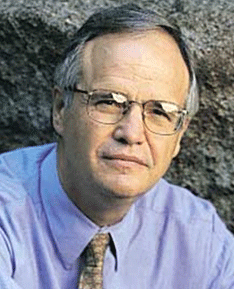
James Gustave Speth, Dean of the Yale School of Forestry and Environmental Studies.
YOUNG: Well, I think a lot of people when the Warner-Lieberman bill almost sorta kinda came to the floor - there was a realization here: “Wow, this is going to raise a lot of money.” And you saw all the finance committee guys wanting to get in on the game so they could help spread that money around. So, I think in Congress at least, you could try to sell this among people as a revenue generating activity that’s not called a tax, which is something that I think a lot of people are going to find appealing.
CURWOOD: And the money is raised by what – auctioning off the carbon rights …
YOUNG: Correct.
CURWOOD: … and that’s worth what – fifty billion a year?
YOUNG: Well, it’s gonna depend on the shape of the program. But Senator Obama – now President-elect Obama – has committed to an auction-style program there which would generate a lot of income.
CURWOOD: And that fits into your mathematics, Van Jones?
JONES: Well, it sure does. I definitely want to echo the dean here. You know, cutting carbon is the biggest human rights and civil rights issue of our time. The people who are gonna get hit first and worst if we don’t dramatically reduce carbon are poor people, vulnerable people all around the world. So, we say a dramatic reduction in carbon is the right policy. What we’ve got to be able to do is to take care of people now and going forward.
SPETH: I couldn’t agree with that more and I think the use of these revenues from the auctions can be used to cushion the impact on low income groups and on the groups that are adversely affected by the legislation, and that’s very important. There are other things that President-elect Obama wants to do that would also be very effective in providing decent economic opportunities and adequate income for people who could be otherwise seriously affected by rising energy prices.
YOUNG: Van Jones, I’m wondering what you think about where coal should fit in the future here? And what should President Obama do? What kind of message should he send to the coal industry?
JONES: Right now coal fits in really well where it is – in the ground. It’s where I think it belongs….
YOUNG: Ah ha ha ha.
JONES: … and I think that we need to quit with the fantasy about clean coal. You know, we could have clean coal or we could have unicorns pull our cars, we could have fairies light our homes with their wands. We don’t – there’s no such thing as clean coal technology right now. And what we do have is a Saudi Arabia of wind and a Saudi Arabia of solar and existing technology to tap that. We’ve got to have a breakthrough in transmission, we’ve got to have a break through in energy storage, but we got to talk a lot more about the losers here, not just the winners. We want to make sure that, you know, we spread those green jobs around, but some people are going to lose their jobs. We need to say to our coal miners in this country, who are heroes, who sacrifice their lungs, they sacrifice their communities, they’re now being asked to blow up their grandmothers’ mountain tops to keep powering America. You’re heroes. We appreciate you. We want to retire you with dignity and honor. We’re not going to try to make you go work for Wal-mart or become a computer programmer or something, you know, crazy. We want to retire you with dignity and honor. You powered America to this point, but now it’s time for those 150,000 people to be able to step back so a whole new set of industries can step forward. Getting the politics right, making sure people understand that there are material gains here is critical. We can’t drill and burn our way out. We can’t mine our way out. We can invent and invest our way out, and that’s the right direction for America.
CURWOOD: Now, Gus Speth, you were around with the Clinton/Gore transition and, as I recall, Vice President Gore particularly identified with trying to set up a BTU tax to take on the question of carbon back in 1993. And, well, I think to put it mildly, Congress rejected that. Less kindly, one would say that Mr. Gore has his head handed back to him trying to do something right away on climate change using tax policy.
SPETH: Well, it’s a totally different situation now. You know, we know that the climate issue is far more urgent today than it was then. And I think that the president needs to convene a sort of a brains trust right away to come up with a comprehensive overall plan to deal with this climate threat. This is a threat that the scientists are actually more concerned about than the environmentalists. It’s going to require a huge effort. We need somebody at the cabinet level who’s gonna be responsible for steering this large effort through the administration. I think the second thing the president ought to do is to convene a White House meeting of top scientists on this issue. He went from there to a major address to the American public from the Oval Office on what we have to do to deal with our combined problems of climate, energy dependence and the need to get the economy working. I think he’s got to take these three issues to the public together in a compelling way that really galvanizes and is the springboard for a large administration effort.
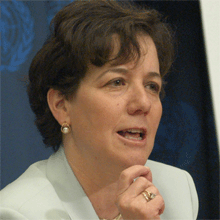
Ceres president Mindy Lubber.
CURWOOD: So let’s go back to you, Jeff Young, on Capitol Hill. We’ve laid out some really big issues here. How does a president who’s got – what – Afghanistan, Iraq, Wall Street, needs to get his kids a new puppy, I mean he’s got – the list is long.
[LAUGHING]
YOUNG: There are high expectations and there’s a lot on the menu, that is to be sure. I think, you know, we have seen very clear signals from Senator and then President-elect Obama in his victory speech that this is going to be a very top priority. The specifics of how he carries that out are not yet clear. Seems to me that one of the early trains leaving the station is likely to be an economic stimulus package and I’m wondering what our panel thinks about how many of these things can be addressed via an economic stimulus bill, because that’s one of the first things that I think Congress is gonna act on.
CURWOOD: Van?
JONES: I think that’s right. I mean, first of all, we’ve gone to bat three times now, well two times now to try to get the economy going. First we did a silly stimulus, where we just passed out checks to everybody and then people ran out to Wal-mart and bought flat screen TVs that are made in China, so we stimulated the economy – in China. We didn’t stimulate our own economy and so that creates a problem in terms of how we think about the stimulus going forward. Then we bailed out the banks we didn’t bail out the people, didn’t bail out the planet. So now, hopefully the third time will be the charm. We have the chance to do a green stimulus, a smart stimulus, a stimulus that would put people to work, greening our infrastructure. Those jobs have to be done here. That money will recirculate in the economy and create other jobs. That’s the real work of America going forward.

With an election victory behind him, the spotlight moves to the first 100 days of Barack Obama's presidential administration. (Courtesy of Barack Obama)
CURWOOD: Mindy Lubber?
LUBBER: Well, the first thing is we shouldn’t separate out putting a cost on carbon from the economic stimulus package. It’s the right market signal and that’s what needs to happen. We then need to make sure our tax incentives are in the right place, stop financing and providing incentives to the dirty pollution, put those incentives in place for clean technology. There are dozens of ways to do this. Prior administrations may have cared about it, but they didn’t show it in action. What we are hoping and expecting and believing President-elect Obama will do is do the kinds of things we’re talking about: make climate change and the economy an issue that’s tied together, make it a priority in the first three, four, sixth months and two years of his administration, put the right laws in place, the right regulations in place and it will be one of the factors that rebuild our economy rather than watch our economy in crisis.
CURWOOD: Look – these values have been out there for quite a while. You have – on Capitol Hill you have folks that come from parts of the country that are dependent on petroleum, on coal extraction, the manufacture of SUVs – these folks are looking at their own constituencies and saying, you know, I need to protect those.
JONES: Well, and they’re right to do that. I think that there is a legitimate fear in any transition – who’s gonna win and who’s gonna lose. The problem is that we are already at the end of the road for the last model where we ran the economy based on credit cards and consumption, everybody, you know, run out and buy stuff, that’s how we keep the economy going. We’re gonna have to start building stuff and producing stuff, and energy – clean energy – is one of those things we can produce. All the jobs that we need, including for people who right now are in polluting industries, are actually not in the dirty part, they’re in the clean and green part, and I think the president’s got to make that case over and over and over again.
SPETH: There are probably as many jobs – I think that there’s estimated – there are as many jobs can be created in what Van is describing as the jobs that this country has lost in this decade.
CURWOOD: How much time is there to get this agenda going before events and such take away the power of a new president to….
LUBBER: The reason we’re having this conversation, I truly believe, is because we are out of time. We should have been acting yesterday or last week. It is up to this president to show us the leadership that we need and we all have high hopes that he will, to make this a priority not only here in the United States but to lead internationally, so not only could we deal with a problem in a way it has to be dealt with and stop building two new coal fired power plants every week in China, but to regain America’s credibility in the world community on this very important issue.
CURWOOD: Mindy Lubber is president of Ceres. I want to thank you for taking this time, Mindy.
LUBBER: Thank you.
CURWOOD: Gus Speth, James Gustave Speth, is dean at the Yale School of Forestry and Environmental Studies and a former White House advisor for both President Jimmy Carter and President Clinton. Thank you, sir.
SPETH: Thank you, Steve.
CURWOOD: And Van Jones is the author of the new book, “The Green Collar Economy.” Thank you so much, Van.
JONES: Glad to be here. Gobama!
Related links:
- To learn more about Mindy Lubber and her company, Ceres, click here
- To learn more about Van Jones and his organization, Green for All, click here
- To learn more about James Gustave Speth, click here
Change to Come

(A pro-drilling delegate at the Republican National Convention. (Photo: Bobby Bascomb)
YOUNG: Our listeners weighed in on what direction they think Obama should go. Claudia Miller from Kent, Ohio, wrote, “I would very much like to convert our home to geothermal energy for heating. It would help me to be able to take advantage of a low interest “mortgage” type loan. So I would like to see programs to help homeowners utilize geo-thermal, solar, wind, biofuel, and other green energy sources.”
CURWOOD: And Jay Turner of San Jose, California, was one among many who wrote to us urging that the next administration, the Obama administration, reengage with the international negotiations over climate change.
And Jeff, you know, that brings up the fact that next month in Poland there is a meeting of the climate change negotiations, a very important one, and I’m wondering who the Obama administration may send even before they come into office to these negotiations. During the Bush years, no one over the rank of undersecretary of state ever went to these negotiations.

A pro-drilling delegate at the Republican National Convention. (Photo: Bobby Bascomb)
YOUNG: You’re right, that may be a very important indicator of the priority they place on that. The other thing of course we’re going to see here over the next few weeks is the shape of the cabinet, the Obama cabinet, the names of folks who are going to be heading up these very important positions in environment and energy agencies and that will tell us a lot about the priorities the president places on this and how he plans to achieve his goals here.
CURWOOD: Think about Interior, for example. Now whoever goes there, a lot rides on it. On the one hand, you might have someone who really wants to do a lot of drilling, and a lot of mining, for example, or someone who wants to focus on even expanding the protection of public lands, and bolstering the National Park Service.
YOUNG: And who’s going to head the Environmental Protection Agency? There are some big decisions awaiting whoever walks into that office, and kind of a mess to clean up in that agency as well. So - important decisions, and we’re going to be watching.
[MUSIC: Election Wrap: Manu Katche “Number One” from Neighbourhood (ECM 2005)]
CURWOOD: Under current federal law, the Los Angeles River is not entitled to protection, as it doesn’t flow all of the time – and that makes developers happy.
DESIDERIO: It can't be the case that the regulatory branch of the federal government should be so intrusive that it can control every drainage ditch or water body that gets wet after a storm.
CURWOOD: But activists say the waterway is the soul of the city. The fight to save the Los Angeles River - next time on Living on Earth.
Living on Earth is produced by the World Media Foundation. Our crew includes Ashley Ahearn, Bobby Bascomb, Eileen Bolinsky, Bruce Gellerman, Ingrid Lobet, Helen Palmer, and Mitra Taj, with help from Sarah Calkins and Marilyn Govoni. Our interns are Sandra Larson and Jessie Martin. Jeff Turton is our technical director. Alison Lirish Dean composed our themes. You can find us anytime at loe.org.
I’m Steve Curwood.
YOUNG: And I’m Jeff Young. Thanks for listening.
ANNOUNCER: Funding for Living on Earth comes from the National Science Foundation, supporting coverage of emerging science, and Stonyfield Farm: organic yogurt and smoothies. Stonyfield pays its farmers not to use artificial growth hormones on their cows. Details at stonyfield.com.
Support also comes from you our listeners, the Ford Foundation, the Town Creek Foundation, the Oak Foundation supporting coverage of climate change and marine issues; the Skoll Foundation, supporting social entrepreneurs around the world – uncommon heroes dedicated to the common good. Learn more at skoll.org; and Pax World Mutual Funds: socially and environmentally sustainable investing. Pax World: for tomorrow. On the web at paxworld.com.
ANNOUNCER: PRI, Public Radio International.
Living on Earth wants to hear from you!
Living on Earth
62 Calef Highway, Suite 212
Lee, NH 03861
Telephone: 617-287-4121
E-mail: comments@loe.org
Newsletter [Click here]
Donate to Living on Earth!
Living on Earth is an independent media program and relies entirely on contributions from listeners and institutions supporting public service. Please donate now to preserve an independent environmental voice.
NewsletterLiving on Earth offers a weekly delivery of the show's rundown to your mailbox. Sign up for our newsletter today!
 Sailors For The Sea: Be the change you want to sea.
Sailors For The Sea: Be the change you want to sea.
 The Grantham Foundation for the Protection of the Environment: Committed to protecting and improving the health of the global environment.
The Grantham Foundation for the Protection of the Environment: Committed to protecting and improving the health of the global environment.
 Contribute to Living on Earth and receive, as our gift to you, an archival print of one of Mark Seth Lender's extraordinary wildlife photographs. Follow the link to see Mark's current collection of photographs.
Contribute to Living on Earth and receive, as our gift to you, an archival print of one of Mark Seth Lender's extraordinary wildlife photographs. Follow the link to see Mark's current collection of photographs.
 Buy a signed copy of Mark Seth Lender's book Smeagull the Seagull & support Living on Earth
Buy a signed copy of Mark Seth Lender's book Smeagull the Seagull & support Living on Earth

